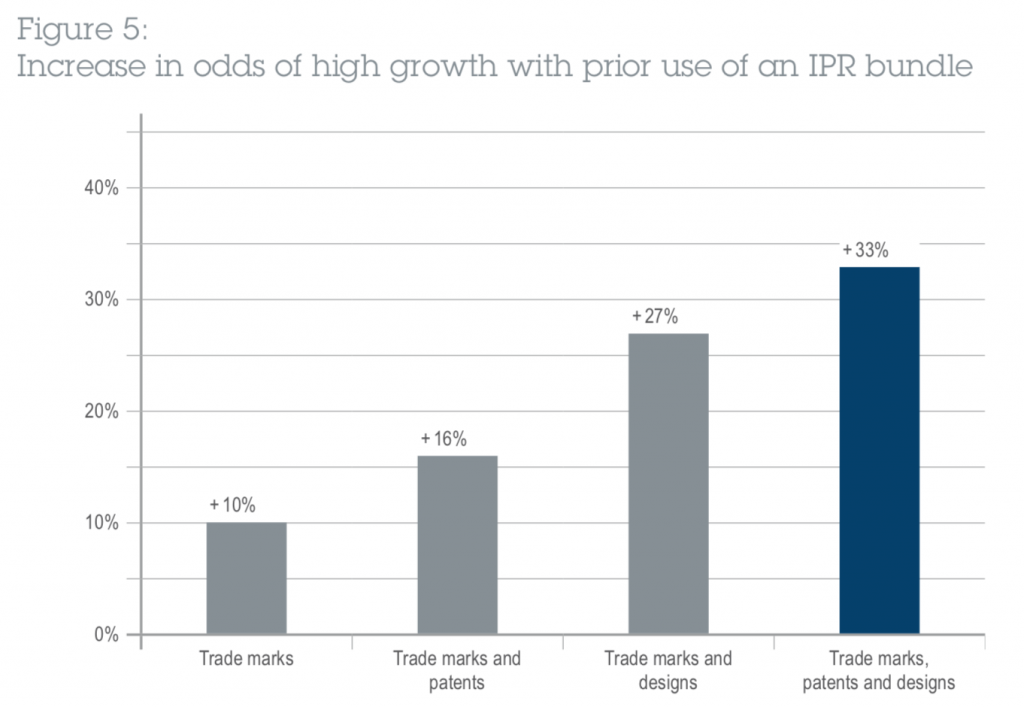A recent study by EPO and EUIPO explores the relationship between prior IPR activities of SMEs and the likelihood of experiencing a high-growth period.
The purpose of the research was to investigate the following questions:
- Can the filing of IP rights be used as a reliable predictor of the likelihood that an SME will experience high growth?
- If so, what are the types of IPR strategies that perform best as a signal of SMEs’ growth potential?
Interestingly, the study found a correlation between prior IPR activity of SMEs and the likelihood of experiencing high-growth periods. However, as noted in the study: “this correlation should not be interpreted as a direct causal effect: the mere filing of an IP right is not sufficient to trigger growth, but it can signal a firm’s stronger ability to sustain growth through the creation, protection and exploitation of intellectual assets”.
Even more interesting, the study has found a greater likelihood of achieving high-growth with prior use of multiple IPR activities, as illustrated in the figure below (extracted from the study):

The report highlights five main findings from the study that will be of particular interest to SMEs:
- SMEs with prior IPR activities are more likely to grow than other SMEs
- The likelihood of becoming a high-growth firm (HGF) is even higher for SMEs that have filed a European IPR
- Prior patent filings perform best as HGF predictors in high-tech and low-tech industries
- Prior trade mark filings perform best as HGF predictors in consumer-oriented industries
- SMEs that use bundles of trade marks, patents and designs instead of a single category of IPR are even more likely to achieve high growth.
The findings highlight a correlation between intellectual property rights activities of SMEs and not only their future growth ability, but also their longevity in increasingly crowded and competitive market spaces.





